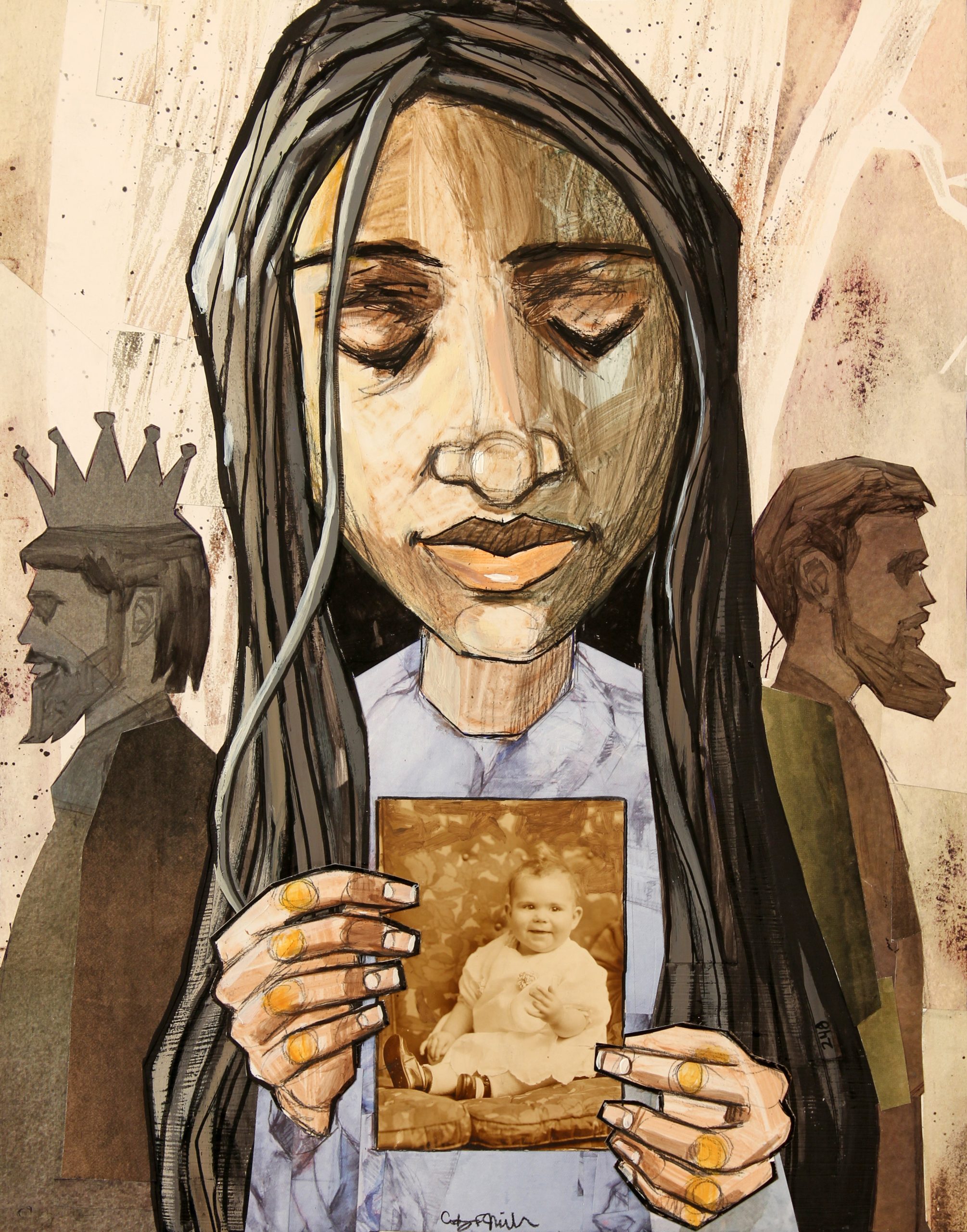What My Grandmothers Taught Me
Lesson Six

Lesson Six: Bathsheba
Primary Scripture:2 Samuel 11–12; 1 Kings 1:11–31; 1 Kings 2:13–25
The Courage and Resilience to Name Injustice
I admit, of all the grandmothers, Bathsheba has been the most difficult for me to get to know. There is little written about her, and her appearances are infrequent and intermittent and separated by narrative and chronological time. We are never told what she is thinking or feeling, and we see very few of her actions. Thoughts, feelings, actions—how are we to understand her without these details?
What we do see, and I find myself pondering, are the actions taken against her. (Perhaps what follows should come with a trigger warning! For, if we list what is done to Bathsheba, our feelings may overwhelm us and anyone who has shared even part of her experience.) Bathsheba is taken from her husband’s house by a powerful ruler; she is raped and sent back home. She becomes pregnant by her rapist, who fixes the problem by having her husband murdered and making her his own wife.
Harsh reading? Perhaps, but there are still many places in the world where such violence is the daily reality for some women. And almost everywhere in the world, it is still women who bear the shame and disgrace for the actions men take against their bodies. Over the past several years the #metoo movement has brought the tip of this iceberg to light even in our supposedly “developed” nations, where some women are considered to have power endowed by money, education, and position.
My heart goes out to Bathsheba and to all her sisters who struggle to find their places in a world in which they have little true voice. They are the women who dare to speak up for the sake of their children, in the hope that the world might become a safer place for them to grow up. They are the women who work all hours of the day and night to give their children the education and opportunities they didn’t have themselves. They are the women who somehow find, within their invaded and colonized lives, ways to be strong, wise, courageous, and loud for the sake of others.
What else do we know about Bathsheba from these passages of scripture and from the Gospel of Matthew? One important thing is that Bathsheba points to injustice simply by being named. I don’t think Matthew tries to hide her identity by not using her personal name in the genealogy. Rather, by drawing attention to the relationship that was destroyed by the king, who is otherwise seen as the exemplar of faith, I believe Matthew names both Bathsheba and the injustice perpetrated against her in shorthand form. King David still takes his place in the list of ancestors and continues to have meaning for the community as a companion in prayer (in the Psalms) and as the one through whom salvation comes to the world.
This story reminds us sharply that people are complex: if we don’t know ourselves and our motivations the best of us can be driven by hidden needs that we can’t even fully name. But, like David, forgiveness is possible if we learn from even our most terrible mistakes.
May Bathsheba teach us about courage and resilience, and about the importance of naming those to whom injustice has been done. Our world needs plenty of both!
Merryl L. Blair
author of the 2021-2022 PW/Horizons Bible Study
******
Purchase a What My Grandmothers Taught Me bible study book and study along with us.
Call 800/533-4371 and order product #HZN21100 or order online
